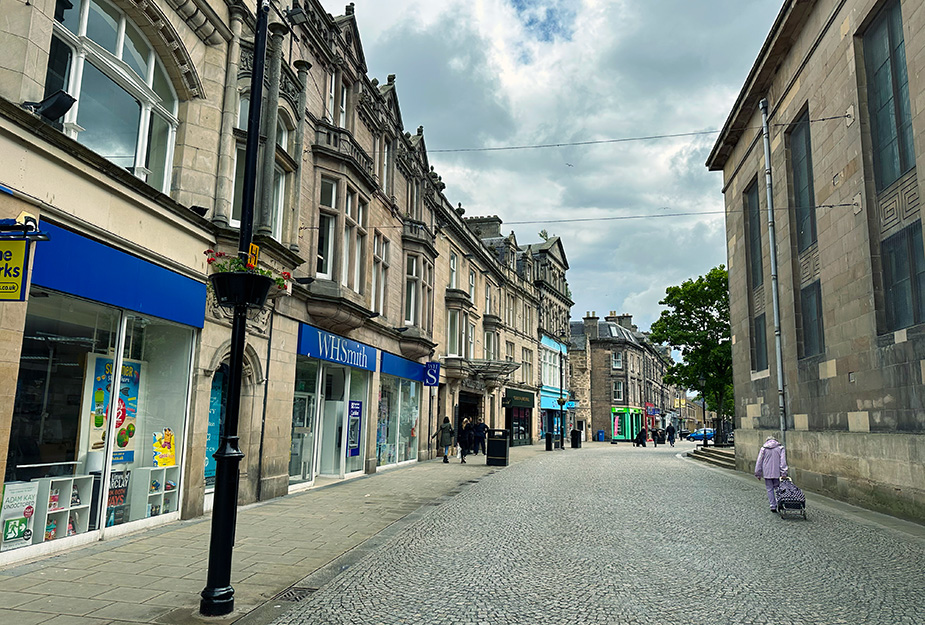A place-based approach to Town Centre Living

Key takeaways from the Place and Wellbeing Alliance
90 people from across public, private and third sector delegates were brought together for discussions around how we can adopt a place-based approach to address the challenges and opportunities for town centre living.
The event was held online following the recent Town Centre Living Investment Roadshow Event series delivered in partnership with Scotland’s Towns Partnership, Scottish Futures Trust, Architecture and Design Scotland and Scottish Land Commission.
This event focused on exploring how town centres can be revitalised through increased housing opportunities, with a positive impact on health and wellbeing, while also considering net zero goals. Here are the key takeaways.
Collaboration is key
Successful town centre living projects require strong partnerships between public, private, and third sectors. Consider partners outside the usual key list of stakeholders that would be involved. This collaboration unlocks resources, expertise, and community buy-in.
Community matters
Local communities can play a crucial role in both initiating and stewarding town centre living projects. Their involvement fosters a sense of ownership and ensures the project aligns with local needs.
Benefits beyond housing
Town centre living offers various advantages beyond just affordable housing. It promotes social interaction, creates vibrant and bustling town centres, and prompts improved access to services through walkability and public transport.
Net zero considerations
Town centre living can contribute to achieving net-zero goals by reducing car dependency, minimizing embodied carbon in construction, and encouraging energy-efficient buildings.
Focus on diversity
Housing options within town centres should cater to diverse needs. This includes smaller units for younger generations and those downsizing, as well as incorporating dementia-friendly design principles that can be applicable for wide range of people.
Micro-regeneration
Small-scale regeneration projects can act as catalysts for larger initiatives, fostering a sense of place and encouraging further investment.
Gathering evidence through data
The importance of collecting data and the right type of data was mentioned, particularly around planning town centres. Data is crucial for understanding community needs and ensuring developments meet those needs. This included data that can help address public health inequalities, services, transport links and climate change adaptation.
Reimagining town centres
Reimagining town centres post-covid and how they can be used to create places where people can thrive was a key discussion point. The focus is shifting from retail-centric town centres to places that cater to residents and offer a good quality of life with access to everyday facilities.
Overall, the event showcased the potential of town centre living as a strategy for urban regeneration, promoting health and wellbeing while contributing to a more sustainable future.
Sharing learning at the Town Centre Action Plan Forum
Delivered in-person at the Melting Pot Glasgow on 24 April, the Town Centre and Action Plan Forum brought together key stakeholders representing the public sector leaders, private development industry and community-led associations.
The learnings collected from the Town Centre Living and Investment Roadshows and Place and Wellbeing Alliance were presented to the Town Centre Action Plan Forum.
Following the forum, a more detailed report will be put together to share key lessons learned on Town Centre Living with a wider audience.
Header image of Elgin high street taken by Architecture and Design Scotland
